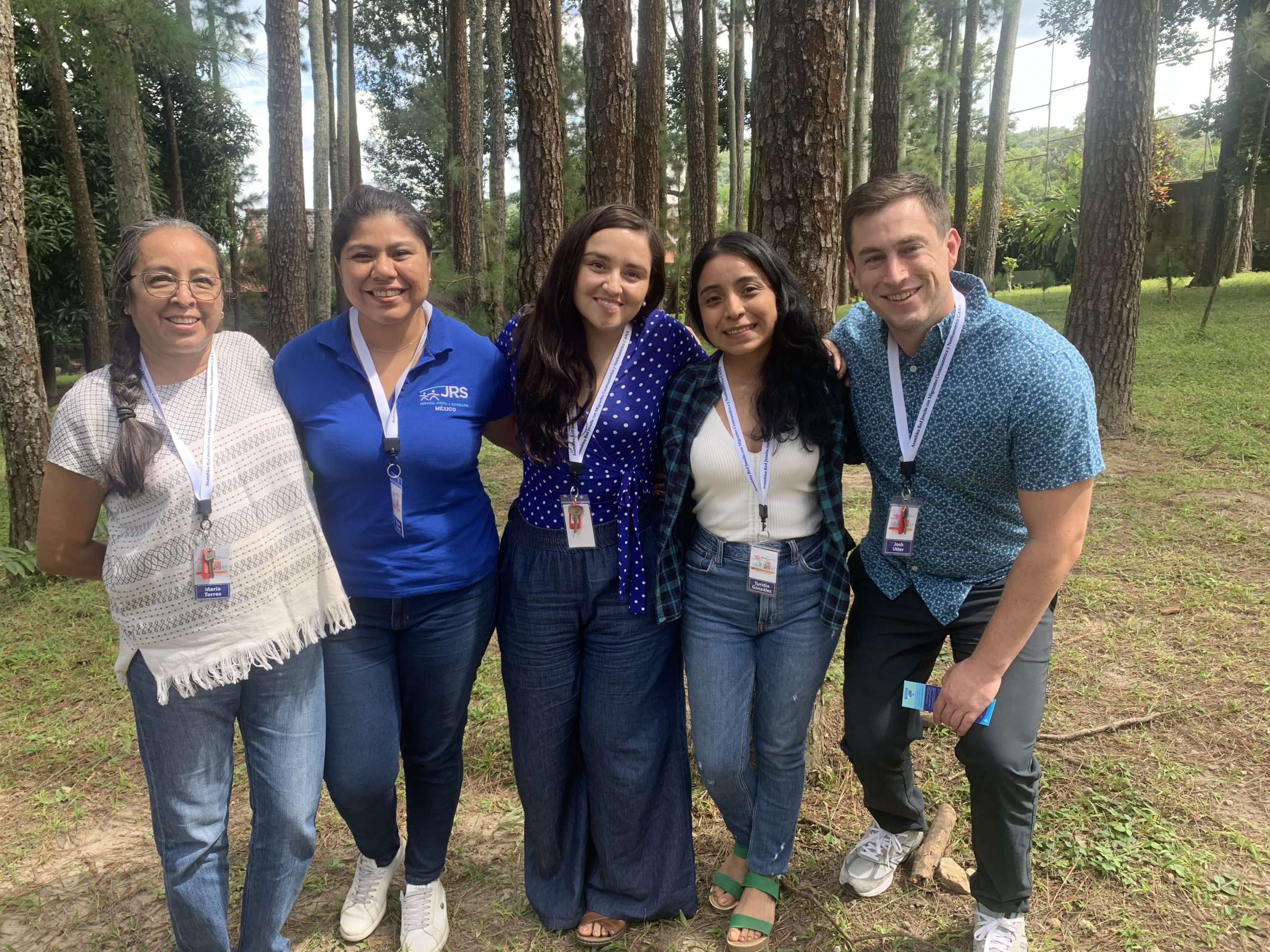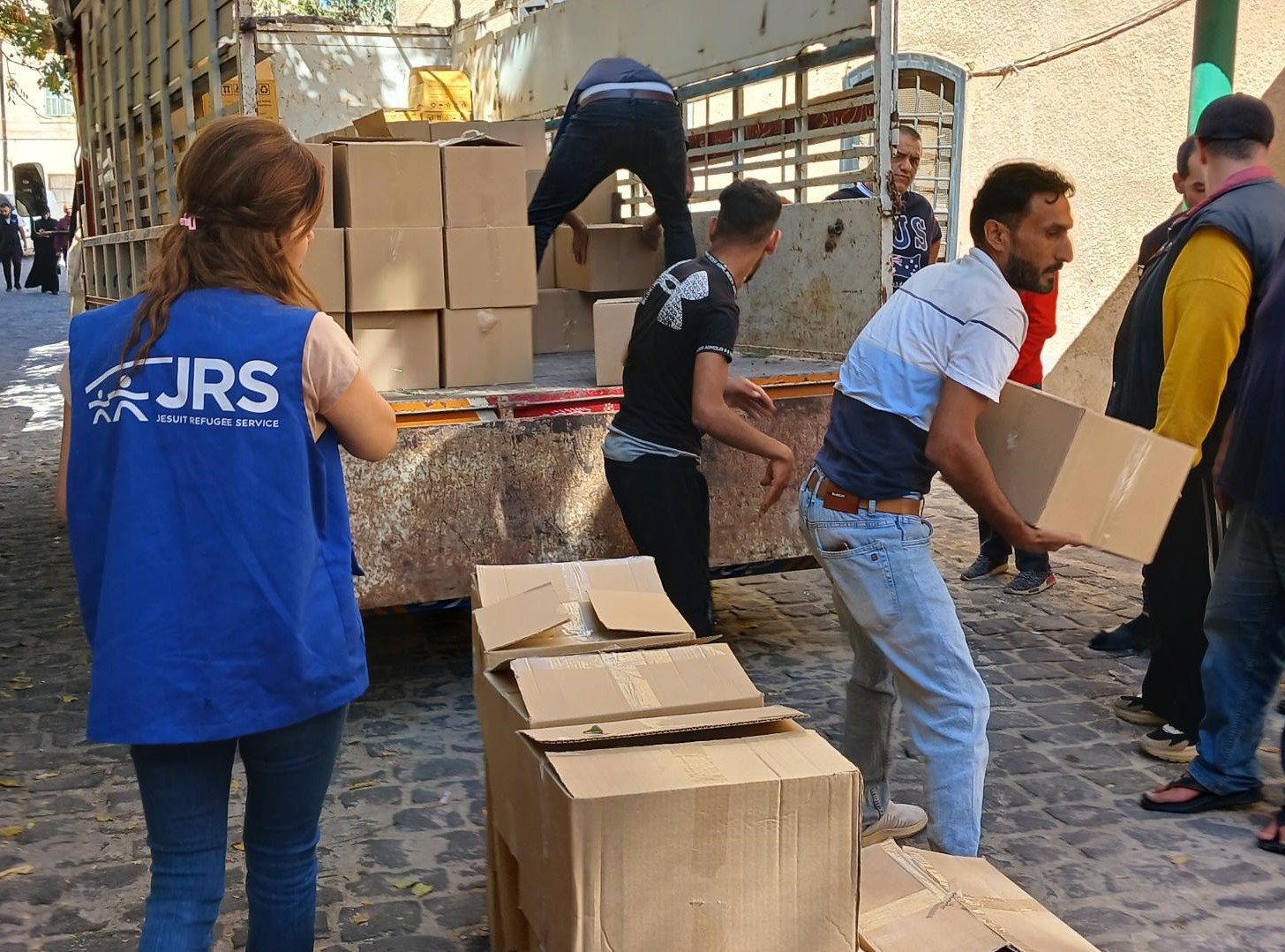Baton Rouge Advocate, Guest Column: Welcoming refugees shows compassion and brings benefits. Here’s how.
28 March 2025|Baton Rouge Advocate Guest Column - JRS/USA President Kelly Ryan
Published via Baton Rouge Advocate
Jesuits came to the United States in 1700, which, of course, means we were not yet the United States. They set up in the Louisiana Territory and were some of the first explorers of the mighty Mississippi.
This also means the Jesuit order and its missions and staff have been part of the U.S.’s immigrant history, which includes taking in tens of millions of refugees. We have experienced the moments all Americans should be proud of — lifting the lamp beside the golden door for generations seeking a better life.
There are also moments we deeply regret, like the Roosevelt administration’s 1939 rejection of the MS St. Louis and the 937 Jewish Europeans onboard seeking refuge.
In 1980, the U.S. created its modern refugee program. Some refugees are admitted after being interviewed overseas; others seek asylum at a U.S. port of entry or while in the U.S. Either way, applicants must prove they meet the criteria for refugee status, which includes a well-founded fear of persecution. They must also pass a rigorous security and background screening. Asylum is a central part of our law, not a loophole.
Our refugee resettlement system evolved into a strong network built on public-private partnerships.
Communities recognized both the moral imperative as well as the economic and social benefits of resettling refugees, who went on to create businesses, join the military, enliven our cuisine and otherwise enrich our communities.
Today, our immigration system needs work. Asylum applications are backlogged by years. Some attempt to gain asylum without meeting the criteria because they lack other options. Neither of these facts means we should end asylum — a critical part of the larger refugee and immigration picture that unites families, helps us fill vacant jobs and allows trafficking victims to live in safety.
We must make sure we have an orderly border, staffed by professionally trained officials assisted by smart and ethical technologies. We need to streamline processes, deal with the backlog and make well-reasoned decisions on applications.
Louisiana has benefited from refugee resettlement. Daulat Sthanki arrived in New Orleans with a single bag. Starting as a jukebox repairman, he became a multimillion-dollar businessman, investor and developer in Baton Rouge.
This kind of story has played out time and again in the U.S.
Refugees are vital to the labor market not only because they fill jobs but also because they often go on to pursue more lucrative, entrepreneurial careers. In 2015, more than 181,000 refugee entrepreneurs generated $4.6 billion in business income, according to the National Immigration Forum. These businesses provide jobs, goods and services for thousands of Americans.
The U.S. welcomed more than 2.1 million refugees and 800,000 asylees between 1990 and 2022. According to the Department of Health and Human Services’ Office of Human Services Policy, those welcomed had a massive positive fiscal impact: $123.8 billion total, including $31.5 billion to the federal government and a $92.3 billion to state and local governments.
These benefits are real and important, but that’s not why my organization, Jesuit Refugee Service, does this work. For us, it is an expression of our Catholic identity and an exercise of the freedom of religion enshrined in the Constitution. No government administration should interfere with this right. We are called to welcome the stranger and assist the afflicted and needy. That is who we are. And it’s what Louisianans do.
Assisting persecuted people — many of whom are Christians targeted for their faith — is lifesaving work. In fiscal year 2024, the U.S. took in 29,493 Christian refugees from the 50 countries where Christians suffer the most persecution, including Afghanistan and Myanmar or Burma. Instances of religious and political persecution are getting worse closer to our borders, too.
In Nicaragua, President Daniel Ortega has been targeting the Catholic Church, which has placed itself between the people and the authoritarian government. As of this writing, 11 Catholic priests remain detained after being arrested last summer, an example of what a dangerous environment the country has become for anyone who dissents from the authoritarian government.
After the St. Louis was turned away in 1939, nearly 30% of its passengers were murdered in the Holocaust. We must learn from the mistakes of history. We can and should continue to help people in need.
Refugees and asylees are thoroughly vetted, subjected to rigorous background checks — and their contributions enrich us all.



